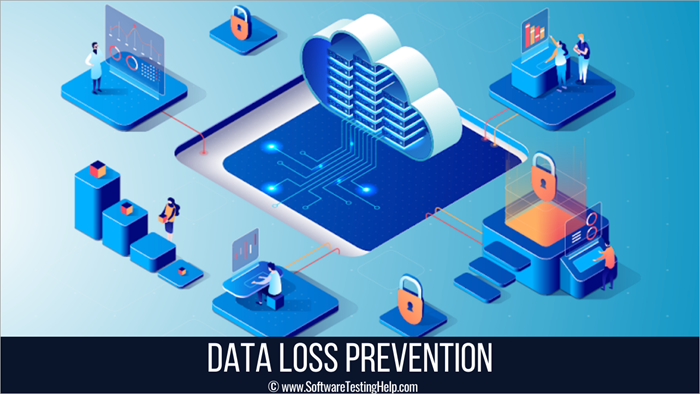A Data Loss Prevention (DLP) solution is a set of technologies, policies, and processes designed to prevent the unauthorized disclosure, leakage, or loss of sensitive data within an organization. It helps organizations identify, monitor, control, and protect sensitive information, thereby reducing the risk of data breaches, compliance violations, and reputational damage.

DLP solutions typically involve the following key components:
- Data Discovery:
DLP solutions scan and analyze data repositories, networks, endpoints, and cloud environments to identify the presence and location of sensitive data. This includes personally identifiable information (PII), financial data, intellectual property, trade secrets, and other types of sensitive information.
- Data Classification:
DLP solutions classify data based on predefined policies or machine learning algorithms. This classification helps determine the sensitivity of the data and enables organizations to apply appropriate protection measures based on its classification.
- Policy Enforcement:
DLP solutions enforce policies and rules to monitor, control, and prevent unauthorized access, sharing, or movement of sensitive data. Policies can include restrictions on data transfer, encryption requirements, access controls, and content filtering to prevent the transmission of confidential or regulated information.
- Endpoint Protection:
DLP solutions often include endpoint agents or software installed on devices such as laptops, desktops, and mobile devices. These agents monitor and control data transfers, detect and prevent unauthorized actions, and provide real-time alerts and user prompts to ensure data protection.
- Network and Data Transmission Monitoring:
DLP solutions monitor network traffic and data transmission to identify patterns, anomalies, and potential security incidents. They can detect unauthorized attempts to access or exfiltrate sensitive data, whether through email, web uploads, cloud services, or other communication channels.
- Incident Response and Reporting:
DLP solutions facilitate incident response by providing alerts, generating detailed reports on security incidents or policy violations, and supporting investigations. They aid in identifying the source and scope of data breaches and help organizations take appropriate remedial actions.
- Data Encryption and Data Loss Recovery:
Some DLP solutions offer encryption capabilities to protect sensitive data at rest, in transit, or in use. Encryption ensures that even if data is compromised, it remains unreadable and unusable to unauthorized individuals. Additionally, DLP solutions may provide mechanisms for data recovery in case of accidental deletion or loss.
DLP solutions are crucial for organizations handling sensitive information, especially in industries with strict regulatory requirements such as healthcare, finance, and legal sectors. They help organizations maintain compliance, safeguard customer data, protect intellectual property, and mitigate the risks associated with data breaches and data loss incidents.
We are information security consultant that can help your organization to implement Information Security Framework based on ISO/IEC 27001:2022, do reach out to us via email at [email protected]

Recent Comments